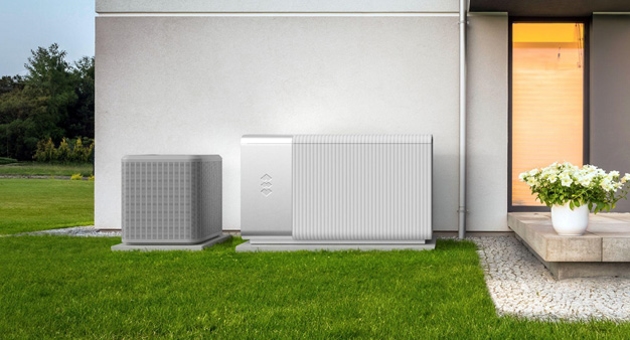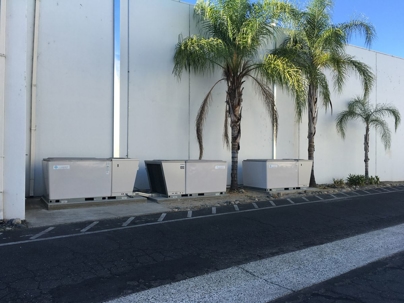What is Thermal Energy Storage?
Thermal energy storage (TES) is a way to store heat or cold for later use. It uses materials like water or ice to hold energy, helping reduce energy costs and making systems like heating and cooling more efficient, especially with renewable power.
We will now discuss how thermal energy storage works and highlight some of the benefits of choosing thermal energy storage solutions for your home or business.
How Does Thermal Energy Storage Work?
Thermal energy storage works by capturing heat or cold and saving it for later use. This process typically happens during off-peak energy hours, when electricity is cheaper or more abundant (especially from renewable sources). The stored thermal energy is then released during peak hours to power heating or cooling systems, reducing the need for real-time energy use.
For example, a system might freeze water overnight and then use the ice to cool a building during the hot afternoon. This shift helps reduce strain on the grid and lowers energy bills.
What Are The Benefits of Thermal Energy Storage?
Thermal energy storage offers several advantages that can make a significant impact on your energy use and costs. By capturing and reusing energy during different times of the day, this technology not only smooths out peak demand but also supports a cleaner, more efficient energy system for your home or commercial building.
We will now go in more depth about the benefits for homes and commercial buildings.\
Thermal Energy Benefits For Homes
Thermal energy storage isn’t just for large-scale facilities—homeowners can benefit, too. As more households turn to energy-efficient and renewable solutions, TES offers a smart way to manage heating and cooling more effectively.
Here’s how homeowners can benefit:
- Lower Utility Bills: Store energy during cheaper, off-peak hours (like nighttime) and use it during expensive peak periods.
- Better Comfort Control: Enjoy more consistent indoor temperatures, especially during extreme heat or cold.
- Increased Energy Independence: When paired with solar panels or other renewable systems, TES allows you to store excess energy for later use.
- Eco-Friendly Living: Reduce your home’s carbon footprint by relying less on fossil fuel-based systems and using energy more efficiently.
- Backup in Power Outages: Some TES systems can offer limited backup cooling or heating, adding resilience to your home.
Thermal Energy Benefits For Commercial Buildings
Commercial buildings, such as offices, schools, hospitals, and retail centers, often face high energy demands and steep utility bills. TES offers a reliable solution for cost savings and energy efficiency on a larger scale.
Key benefits for commercial applications include:
- Demand Charge Reduction: By using stored energy during peak demand hours, businesses can avoid high demand charges from utilities.
- Operational Savings: Lower energy costs and improved efficiency can significantly reduce operating expenses.
- Increased HVAC System Lifespan: TES can take pressure off traditional HVAC systems, leading to less wear and longer equipment life.
- Sustainability Goals: TES helps businesses meet green building certifications (like LEED) and reduce environmental impact.
- Scalability: Thermal energy systems can be scaled to suit small buildings or large campuses, making them a flexible solution across industries.
Is Thermal Energy Storage Right For You?
TES is valuable for homes or large facilities, commercial properties, and buildings with fluctuating energy needs. It can also be a great match for anyone using or planning to use solar energy.
To learn more about our energy storage solutions, be sure to contact us.

